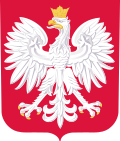Campaign
The sudden dissolution of the First Term Sejm meant that most parties were not prepared for the election campaign. The previous dispute between the post-Solidarity and post-communist camps gave way to conflicts within the former to a large extent. Under the influence of the divergence of paths between the centrist Solidarity and the right, already visible in the 1991 campaign and intensified in 1993, conflicts within the non-leftist parties gained even more intensity. As a result, the Democratic Union (UD) had to compete for a similar electorate with the Liberal Democratic Congress (KLD). Part of the right (Christian National Union, Conservative Party, Christian-Peasant Party) started in the "Fatherland" bloc, but the rest entered the elections independently, or only coalescing microparties around them: the Centre Agreement – Polish Union (PC-ZP), Peasants' Agreement (PSL-PL), Coalition for the Republic (KdR), Confederation of Independent Poland (KPN), Solidarity ("S"), Real Politics Union (UPR). Further attempts at uniting the right-wing parties failed, and as a consequence, most of them would fall under the 5% threshold. [2] President Lech Wałęsa sponsored the pro-presidential Nonpartisan Bloc for Support of Reforms (BBWR) list.
Against the background of the internal fighting in the Solidarity camp, the united left under the banner of the Democratic Left Alliance (SLD), the Labour Union (UP) and the more centrist Polish People's Party (PSL) appeared to many voters as forces guaranteeing stability. The lack of responsibility for the reforms of 1991-1993, including the closure of many workplaces, the rapidly growing unemployment rate and the drop in living standards, resulted in the gradual gaining of new supporters during the campaign. While the elections in June 1989 took on the character of a plebiscite on the rejection of the Polish People's Republic, in the accelerated elections of 1993, with a much higher turnout than two years earlier was seen as a referendum on the first years of the systemic transformation took place.
During the campaign, the victorious left wing segmented the electoral market, on the one hand emphasizing the threat of perceived Catholic fundamentalist policies such as concordat and strict abortion policy addressing its message to the left-wing electorate, and on the other, playing on the sentiment for the times of the Polish People's Republic for economic stability, it sought rapprochement with those who were not beneficiaries of the changes that followed the collapse of the communist system and expected an alternative in the socio-economic dimension, applying primarily to employees of the public sector and those employed in state-owned industry, including the liquidated State Agricultural Farms. The SLD blamed the doctrinaire and incompetence of the Solidarity teams for the mistakes of the transformation, declaring that it had a program and human resources capable of correcting the direction taken at the beginning of the Third Polish Republic. The PSL called for greater interventionism and protectionism in the economy. It also criticized the ongoing privatization, pointing to the advantages of other forms of ownership, such as cooperatives. Alongside with the SLD, it criticized parties and politicians of Solidarity origin. With its bold social appeal it tried to exploit the skepticism of residents of rural areas and small towns, where there were many dissatisfied with the systemic transformation [ pl ].
The Democratic Union focused mainly to economic issues in its campaign, defending the direction of the changes to date and emphasizing the need for further sacrifices. It emphasized its commitment to the principles of the market economy and presented itself as a responsible, pro-state entity. The PSL was closer to the center-right groups, due to the specificity of its electoral base. The UP emphasized its commitment to the principles of the secular state. The KPN and the BBWR positioned themselves in opposition to both the post-communist camp and the anti-presidential right.
The message of the Centre Agreement – Polish Union and the Coalition for the Republic was almost entirely convergent and mainly concerned demands for breaking with the continuity of the Polish People's Republic in the Third Polish Republic. Politicians of the Fatherland bloc presented themselves as defenders of the conservative values including family values and private property. In turn, the Real Politics Union and the Liberal Democratic Congress called for further liberalization and privatization of the economy. The campaign of Solidarity and the PC-ZP was dominated by nationalistic, but at the same time social message.
This page is based on this
Wikipedia article Text is available under the
CC BY-SA 4.0 license; additional terms may apply.
Images, videos and audio are available under their respective licenses.












